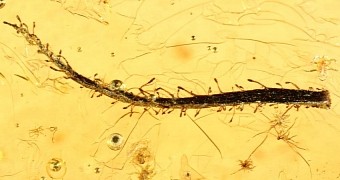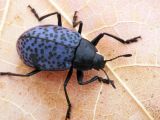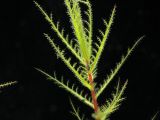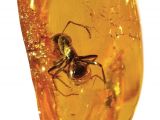A new paper in the journal Proceedings of the National Academy of Sciences announces the discovery of carnivorous plant remains in ancient amber pulled from a mine not far from the city of Kaliningrad in Russia.
The leaves, one of which is pictured in the gallery below, originate from two distinct species. Specialists who have had the chance to study them are quite convinced that they belong to a family of carnivorous plants known as Roridulacea.
If this is indeed the case, this would mean that the ancient plants, said to have populated our planet about 35 to 47 million years ago, weren't exactly carnivorous, Phys Org explains.
Thus, just like their younger sibling Roridula, which now lives in South Africa, they likely secreted a sticky substance which they used to capture insects without ever intending to actually feed on them.
Instead, the ancient carnivorous plants waited for other insects to drop by to feed on their victims and then got their nutrients from the waste these other insects left behind after finishing their meal, researchers say.
Seeing how plants don't fossilize all that well after they die, these leaves discovered encased in amber in Russia are said to be among the oldest carnivorous plant remains thus far unearthed anywhere in the world.

 14 DAY TRIAL //
14 DAY TRIAL // 



